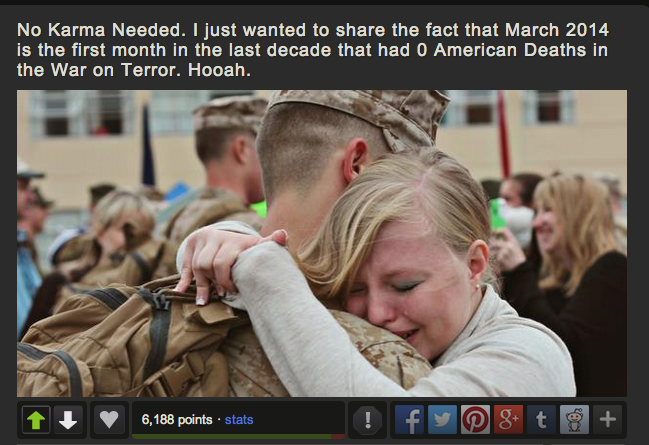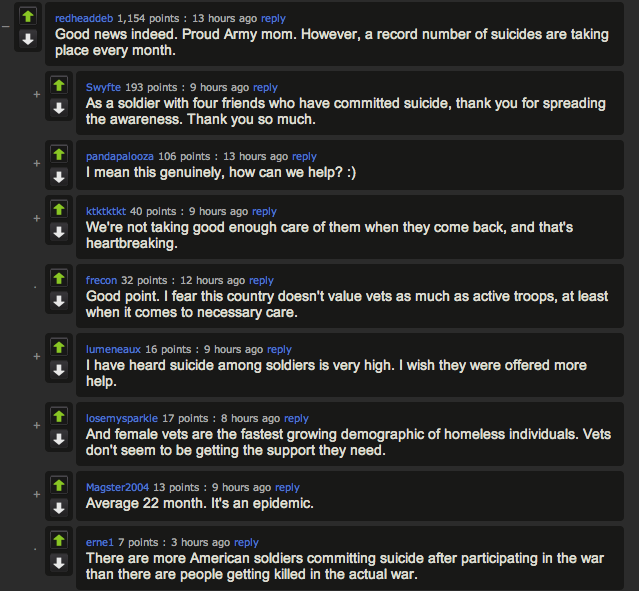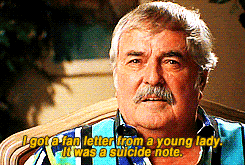March 2014 was the first month in more than ten years in which no U.S. troops died in combat. This moving photo was posted to Imgur last night:
The good news was quickly followed, however, by a reminder of how far we have to go:
The number of suicides by American servicemembers exceeded the number of combat deaths in 2012, and the suicide rate has continued to rise since then. The number of suicides may have started outpacing combat deaths as far back as 2008.
Estimates range from one suicide every 18 hours (per the Army in May 2013) to 22 suicides per day (Department of Veterans Affairs, February 2013), depending on how the data is analyzed. (That 22-per-day figure, which would be 8,030 per year, seems high, so take CNN’s reporting with a grain of salt. One death every 18 hours comes out to 487 per year.) The reasons for soldier suicides are complicated, involving issues that may have been present before enlistment, issues that arose during a deployment, and issues that come up once they return home.
The question now, of course, is what can we do? An obvious start, to my mind at least, would be to stop sending soldiers into harm’s way without an extremely good reason. We’re mostly doing that.
Another would be to stop cutting veterans’ benefits. Maybe we don’t need quite so many weapons?
Some progress is being made on cutting down backlogs for the benefits that veterans have left.
The main issue, though, is providing support to the individuals who are suffering when and where they need it. I have never served in any military capacity, so I certainly don’t know the first thing about the experience of a returning U.S. soldier. I do know a bit about how (and how not) to help people dealing with suicidal thoughts and impulses.
Here’s the thing: there is no one right answer. There are no magic words that will make a suicidal person change their thinking. All we can do is be there, care, and offer whatever is asked for and needed.
Groups like Stop Soldier Suicide are working to educate people about the problem and provide assistance. If you are in Texas, here are some more resources that can help:
- Texas State Suicide Prevention Information
- Suicide Intervention Services in Austin/Travis County
- Texas Suicide Hotlines
- Texas Suicide Prevention
A much bigger list of resources is here.
You never know what will give a person what they need to keep living. Sometimes it’s a friend, a sympathetic ear, or even just a moment of compassion. Sometimes it’s Star Trek:




